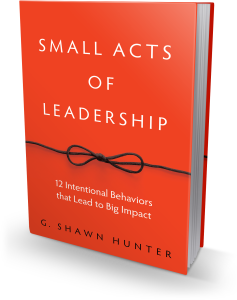How High Performers Think Differently About Stress
Talking in front of lots of people can be stressful, but it doesn’t have to be. Before I go on stage, I don’t think I’m nervous. Instead I think, I’m excited. It’s a subtle change of attitude that makes a big difference.
The problem in our lives isn’t stress, but instead chronic, unabated stress. A little stress can make you alert and focused. A little stress can help your immune system, heighten your resiliency.
A lot of chronic stress is like spray painting your brain with cortisol. It gets everywhere, and it’s hard to remove. Chronic exposure to cortisol is linked to weight gain, osteoporosis, digestive problems, hormone imbalances, cancer, heart disease, diabetes, and more. Chronic unabated exposure to stress and anxiety is debilitating.
The difference between debilitating stress and positive pressure is how we think about it.
“People with a history of some lifetime adversity reported better mental health and well-being outcomes than not only people with a high history of adversity but also than people with no history of adversity at all.”
– Mark Seery, University of California, Santa Barbara
Think about it this way: everyone knows a healthy workout leaves you nicely exhausted, sweating and pleased from the effort. You also know you can not easily go out again and immediately run another six miles or do another 60 minute spinning class. You need rest and recovery for your body to renew and ready itself again for the next challenge.
Your mind is no different. Mental exercise expands and opens new pathways of learning and creativity but you need that period of rest, reflection and recovery to build upon that experience effectively. Commonly, people believe they need to avoid stressful situations and, in particular, other people who are always stressed out.
“Some amounts of stress are good to push you just to the level of optimal alertness, behavioral and cognitive performance.”
– Daniela Kaufer, Ph.D.
According to researchers Hendrie Weisinger and J.P. Pawliw-Fry there are a few things you can do mentally to help reinterpret a stressful event as instead a useful and positive challenge. In their book Performing Under Pressure, they advise us to:
- Think of it as a fun challenge, not a scary moment.
- Remember that it’s just a moment, it’s not the rest of your life. It will come and go.
- Focus on performing the event, not what others will think about it later. Focus on the doing of it.
- Find humor in it. Make a joke. Laughter can quickly defuse a stressful moment.
- Create a pre-performance routine. Just like basketball players shooting a free throw, or golfers lining up a golf shot, the best performers have little rituals they do before each big meeting, presentation or interview. Do that.
Finally, allow yourself to recover. After a big presentation I will often go for a quiet walk or call my family and talk about something completely different. You can realize the full benefits of challenge when you allow yourself stress recovery. The recovery will renew your strength, to then you can bring that heightened confidence and skill to new interactions and elevate those around you.
Released today! We just released our new micro-learning series Raising Resiliency featuring bestselling author Jen Shirkani. Message me if you’re interested and we’ll send you a preview. Enjoy!
- ____________________________________________________
 Shawn Hunter is President and Founder of Mindscaling, a company building beautiful online learning courses based on the work of best-selling authors. My new book Small Acts of Leadership, (Routledge) just released. You can grab a copy now. Have a meeting coming up? Let’s talk.
Shawn Hunter is President and Founder of Mindscaling, a company building beautiful online learning courses based on the work of best-selling authors. My new book Small Acts of Leadership, (Routledge) just released. You can grab a copy now. Have a meeting coming up? Let’s talk.
Twitter: @gshunter
Say hello: email@gshunter.com
Web: www.shawnhunter.com


